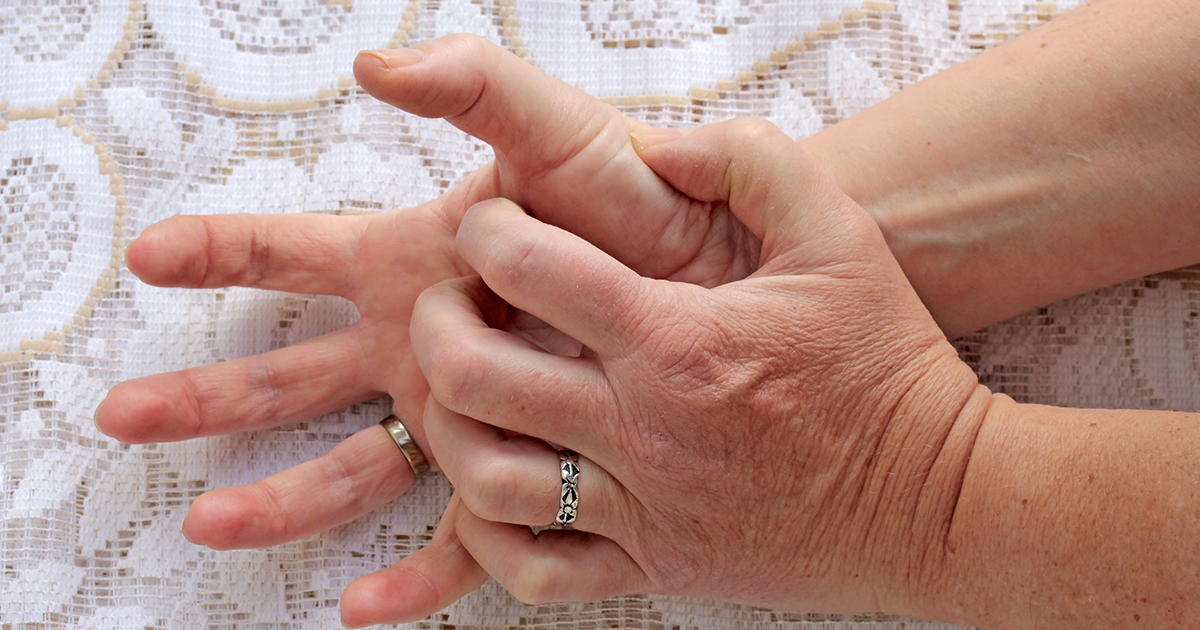Symptoms Of Listeriosis (Listeria)
Sometimes, the food we eat can cause harm. When a product is contaminated by Listeria monocytogenes, which are commonly found in poultry, cattle, soil, water, and can also thrive in food manufacturing plants, it can cause individuals to become ill. It can even cross the blood-brain barrier. Listeria can incubate for anywhere between three and seventy days and can make you feel sick for days or even weeks. Anyone who thinks they might have contracted listeriosis should immediately contact their doctor and get proper treatment. Older adults, pregnant women, and other at-risk populations should pay extra close attention to listeriosis symptoms.
With this in mind, it's time to get familiar with the most common symptoms of listeria now.
Muscle Aches And Pains

Muscle aches and pains are common symptoms of listeriosis and typically last anywhere between one and three days. It can be easy to mistake listeriosis for the flu initially, especially when the muscle aches are coupled with the presence of other symptoms on this list. The intensity of the muscle pains and aches patients might experience can vary and typically taper off after a few days. Affected individuals might notice their back and shoulders bear the brunt of the aches, just like with the flu. Of course, if the muscle pains and aches continue longer than a few days, a doctor should be consulted so they can conduct an assessment and make a formal diagnosis, both of which are required before treatment can begin.
Continue reading to learn about the next pair of symptoms of a listeria infection.
Nausea And Vomiting

Gastrointestinal problems are also quite common with bacterial infections like listeriosis. Individuals might experience just nausea or vomiting, though both can make an appearance as well. Often, these symptoms, which are collectively known as gastroenteritis, will precede others and last about one to three days. However, they can go on longer in serious cases with at-risk populations, including pregnant women, older adults, young children, and anyone with a suppressed immune system. In most cases, these symptoms are considered mild and are not life-threatening. A doctor should properly treat prolonged symptoms, although they usually respond well to antibiotics.
Continue to get the details on the next symptom of listeriosis.
Diarrhea

Again, diarrhea is another aspect of gastroenteritis that commonly occurs in listeria infections. Patients will often experience abdominal discomfort for a little bit before diarrhea begins. This type of bowel irritability could be a one-time-only event or last for several days depending on how an individual's body responds to listeriosis. While diarrhea is one hundred percent unpleasant, it isn't typically life-threatening. However, since it can cause dehydration and depletion of electrolytes, it is important to get enough fluids and electrolytes to help the body replenish what it has lost.
Keep on reading to fully understand the next symptom of a listeria infection.
Convulsions

Convulsions are not as common as gastroenteritis or muscle pains are for symptoms of listeriosis, but they are definitely serious and need to be addressed by a medical professional. Convulsions can happen once the listeria infection has spread to the body's central nervous system. Convulsions occur in about twenty-five percent of listeriosis cases and involve involuntary movements throughout the body. Individuals might think of them as being sudden and spastic muscle twitches, which are a result of the listeria infection crossing the blood-brain barrier. Seizure activity has also been known to happen in serious cases of listeriosis and should be immediately addressed.
Continue reading to learn about the symptoms and complications of listeriosis if the infection spreads to the brain.
When Infection Spreads To The Brain

So, what happens when listeriosis spreads to the brain? This can result in some serious complications, including cerebral abscesses, which is pus that collects within the brain; cranial nerve palsies, which are tremors and paralysis; and meningitis, which is inflammation of the membranes surrounding the spinal cord and brain. It can also include encephalitis, which is inflammation of the brain itself; and meningoencephalitis, which is inflammation of both the membranes around the spinal cord and brain and inside of the brain. When a listeria infection spreads to the brain, it can be harder to treat and will likely be more long-lasting than the more common, less-threatening symptoms.
Read more about the key symptoms of listeriosis now.
Fever

Like most infections, listeriosis typically presents with fever. Healthy individuals will rarely become ill from listeria, but those with compromised immune systems and newborns may exhibit a fever and other symptoms. The fever may start just a few days following the consumption of the contaminated food, but it's also possible up to a month will pass before individuals start exhibiting a fever or other infection symptoms. Fevers occur when the immune system raises the body's temperature as it fights the infection. A high fever is any fever greater than 103 degrees Fahrenheit. If patients experience a high fever, they may need emergency medical treatment to combat the listeria infection and prevent potential organ damage.
Get more details on warning signs of listeriosis now.
Fatigue

Individuals with listeriosis often feel unusual fatigue, which may be coupled with a fever. The combination of fever and fatigue may make individuals feel like they have the generic flu. Even if they get the recommended eight to nine hours of sleep, they may still wake up feeling tired. Their concentration and reaction times may be impaired. If any food an individual has recently eaten has been recalled due to listeria, they should pay attention to their exhaustion levels. They should also be aware foods like poorly heated deli meats, undercooked hot dogs, and foods containing unpasteurized milk are all at risk for carrying the listeria bacteria.
Keep reading to learn more about listeriosis symptoms now.
Stiff Neck

A stiff neck is a very serious symptom because it indicates the listeriosis has spread to your nervous system. It's rare for individuals to experience a nervous system infection due to listeriosis, but the symptoms and progression can be potentially life-threatening. Not every stiff neck is caused by a nervous system infection. Sometimes an individual's neck may be stiff just because they slept at a strange angle. But if an individual knows they've eaten potentially-contaminated food, they should seek emergency medical treatment if they experience a stiff neck, especially if it's combined with other cognitive symptoms or a high fever. If individuals have developed bacterial meningitis due to the infection, they may become permanently disabled or even die. Bacterial meningitis is especially dangerous to infants and toddlers.
Understand more symptoms of listeriosis now.
Headache

A headache is another symptom that can occur if the listeria infection spreads to the patient's nervous system. Like a stiff neck, patients should seek emergency medical treatment for a severe headache. Serious headaches are especially noticeable if individuals don't commonly experience tension headaches or migraines. They may feel like their head is throbbing, pounding, like there's a stabbing sensation behind their eyes, or like their skull is going to explode. Headaches may be accompanied by light sensitivity. When related to listeriosis, a serious headache indicates the infection has begun damaging the nervous system or increasing pressure in the skull. This means the patient needs to go to the emergency room.
Learn more about the key indicators of listeriosis now.
Loss of Balance

If the listeriosis spreads to the nervous system and progresses to bacterial meningitis, patients may experience a loss of balance as one of the neurological symptoms. The loss of balance may be mild or extreme. Patients might also notice their balance issues progressing as the infection gets worse. When individuals stand up, they may experience sudden dizziness or a sense of vertigo. It may be hard to balance when getting up or sitting down. Patients might have trouble walking in a straight line or experience other unusual gait changes. If individuals are losing their balance after being exposed to listeria, they should seek emergency medical care to make sure they don't have bacterial meningitis.